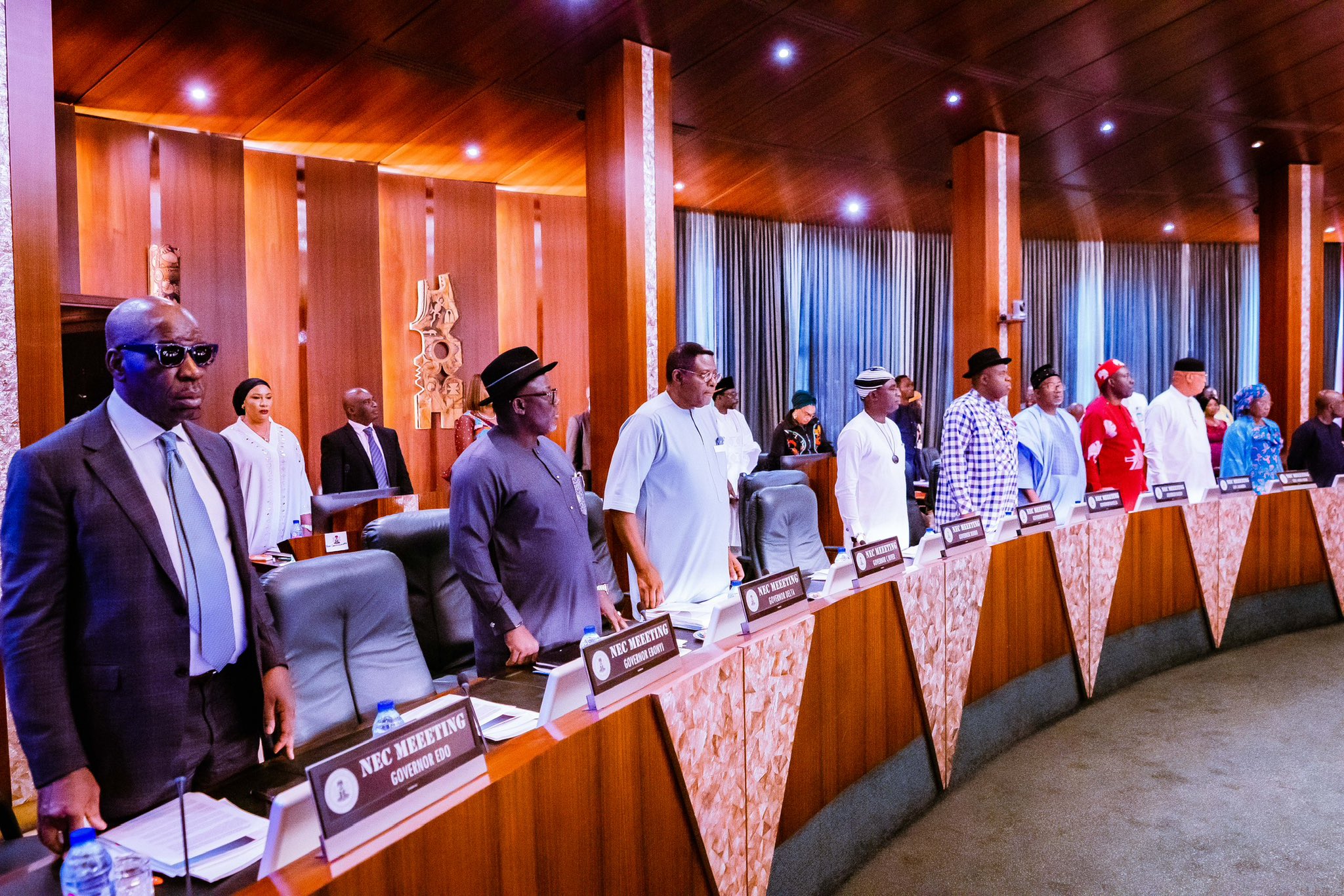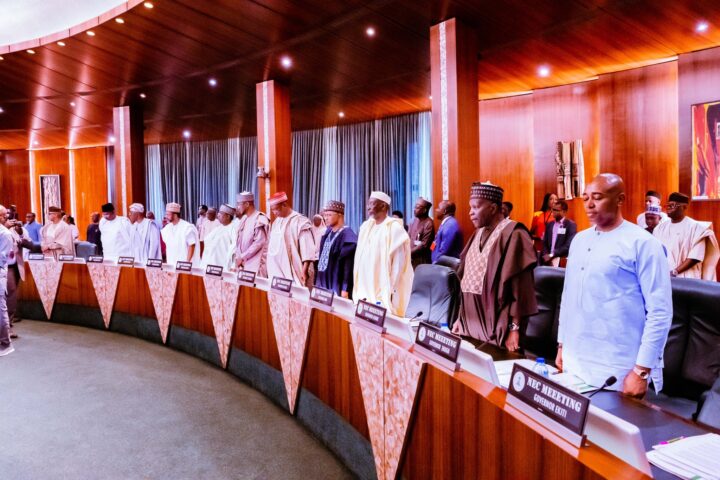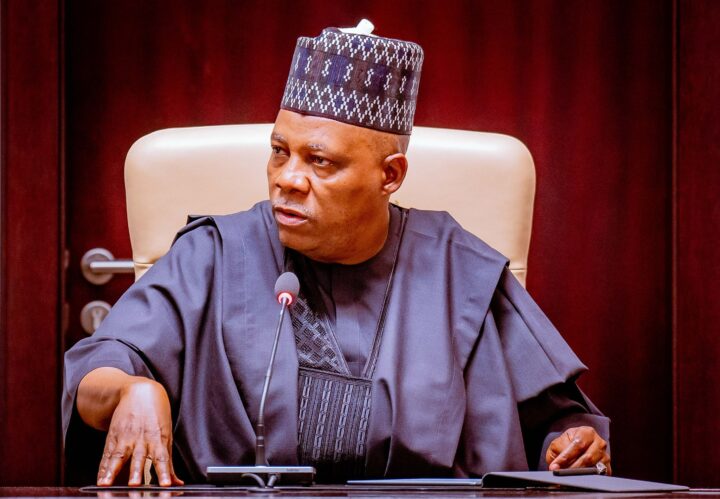The National Economic Council (NEC) on Thursday proposed ways of cushioning the impact of petroleum subsidy removal on Nigerians.
The council, presided over by Vice-President Kashim Shettima, deliberated for over five hours at the state house.
At the end of the session, the NEC proposed implementing a cash transfer programme for states based on their social registers.
The NEC noted that “there’s a big question mark about the integrity” of the National Social Register — and as such — states should develop their respective registers.
Advertisement
Charles Soludo, Anambra state governor; Bala Mohammed, governor of Bauchi; and Dapo Abiodun, Ogun state governor, briefed state house correspondents at the end of the meeting.
Here are five other highlights of their proposal.
PAY SALARY ARREARS; LOANS FOR MSMEs
Advertisement
Members of the council recommended a cash reward policy for public servants for six months.
The NEC also emphasised the importance of paying outstanding liabilities of public servants, including pensions and gratuities, to alleviate their hardship.
The Ogun state governor said the council agreed that government will focus on funding micro, small, and medium enterprises (MSMEs) with single-digit interest rates to support the growth of businesses.
CONVERSION OF PETROL VEHICLES TO AUTOGAS
Advertisement
The governor said they also agreed on the immediate implementation of the Energy Transition Plan, focusing on transitioning to compressed natural gas (CNG) for mass transit vehicles.
The council suggested the establishment of manufacturing and assembly plants for electric vehicles (EVs) in each zone in the country in the long term.
In the interim, the NEC encouraged the conversion to CNG to create employment and reduce petrol dependency.

GRAINS, FERTILISER DISTRIBUTION
Advertisement
The council agreed that food items, grains and fertilisers are to be distributed by state governments at the rate acquired from National Emergency Management Agency (NEMA).
Commenting on the recommendation, the Bauchi governor said the council addressed food security and food price escalation by allocating buffer stocks of grains for distribution to states.
Advertisement
He said the states can choose to sell them at subsidised rates or distribute them for free to ease the burden on citizens.
REDUCE COST OF GOVERNANCE
Advertisement
Speaking on the need to reduce cost of governance, the Anambra state governor said it is “an issue that each tier of government should now focus on as an area of concern”.
Soludo said public officials must cut back on the number of cars in their convoys and the aides they appoint.
Advertisement
He said NEC agreed that politicians should look at themselves in the mirror; “be sensitive to the times” and “knock off the waste and the irrelevances”.
MINIMUM WAGE REVIEW
Soludo said the council also mentioned the possibility of negotiating a new minimum wage over time.
He said: “As part of those recommendations, over the medium, longer term… is the possibility of negotiating a new minimum wage. That obviously will be on the table.
“But that has to be negotiated through the appropriate structures for doing that over time.”
Add a comment






